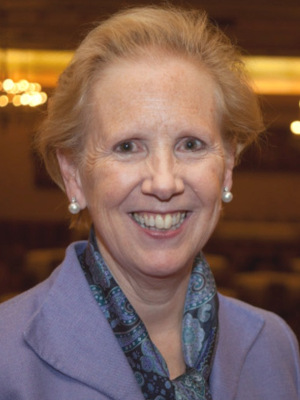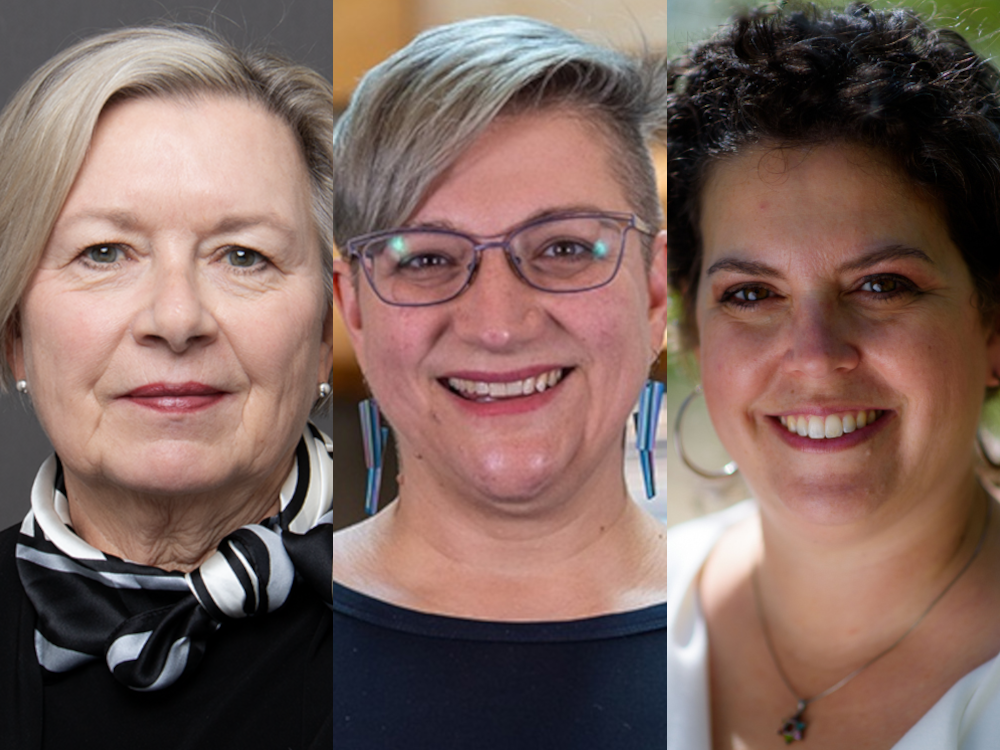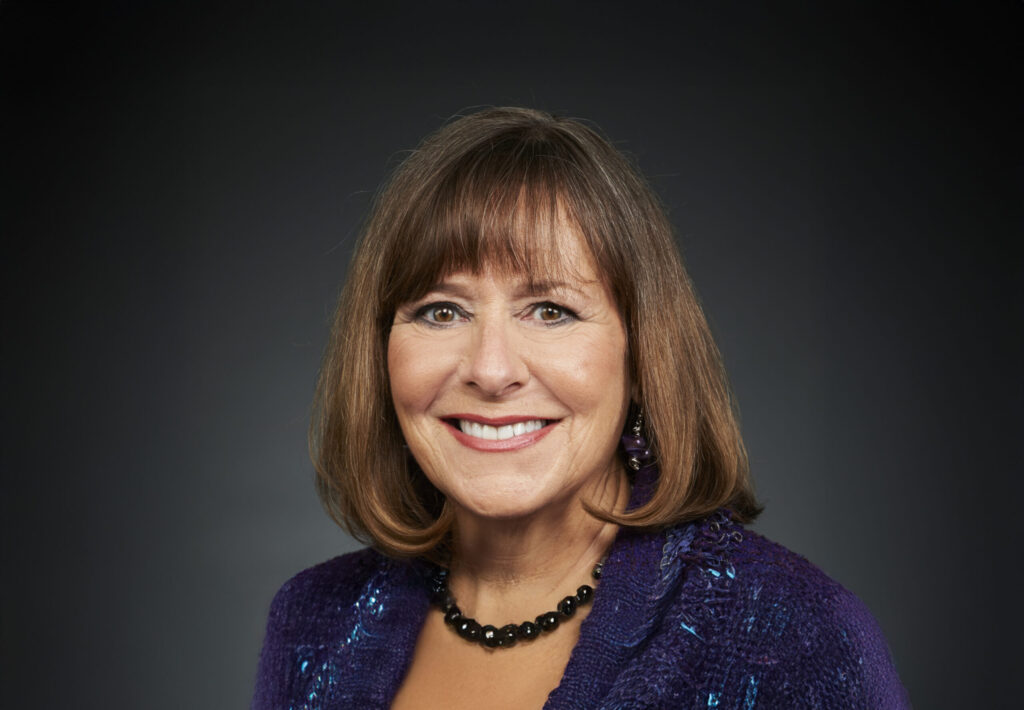Since 2014, TD Wealth has been publishing studies on Canadian women and philanthropy. The most recent, conducted in 2023, reinforces previous findings that women share general tendencies in their charitable giving. It also notes that women “are expected to benefit disproportionately from the transfer of wealth of the next two decades.”
Tax deductions for charitable donations claimed by women almost tripled within one decade—from $1.5 billion in 2011 to $4.3 billion in 2021—the report notes, and are expected to reach $5.9 billion by 2030. Furthermore, emerging evidence indicates that “young female donors differ in many ways from the habits and beliefs of their parents.”
But perhaps its most significant takeaway is that we need more research into the role of women in philanthropy in Canada.

To address this, Carleton University’s School of Public Policy and Administration has launched a three-year research project called Women in Philanthropy. It was founded by Carleton’s Dr. Susan Phillips, a professor of philanthropy and nonprofit leadership, with the support of philanthropist Roslyn Bern, president of the Leacross Foundation.
“Our understanding of philanthropy, particularly in relation to women’s giving and participation, has relied heavily on U.S. research because there has been no Canadian scholarship on this topic,” Phillips says.
“We have a sense that Canadian women approach philanthropy differently than their American counterparts, requiring different strategies and reciprocal relationships with fundraisers and charities,” she adds. “This project will provide a Canadian lens and offer practical guidance to women throughout their philanthropic journeys.”
The project is designed “to support women who are starting or revisiting their philanthropic journeys” and to build a framework of research in the field, facilitating information sharing, deepening the understanding of how and why women give and raising awareness of the role women are playing.
Lisa Trefzger Clarke is the project’s inaugural postdoctoral researcher, charged with helping launch and build the project by developing a program of research and information sharing. She will be supported by a team of graduate students and faculty members.
“This is an unprecedented opportunity to bring both lived experience in the field and academic research together,” says Trefzger Clarke. “Women invest in vital ways for our social well-being across Canada, and I look forward to hearing their stories.”
Many areas are under-researched, says Gena Rotstein, an advisor in philanthropy based in Calgary. She describes her firm, Karma & Cents Inc., as a “social impact lab for philanthropists,” and she is also a faculty member with Blackwood Family Enterprise Services in Winnipeg and an advisor to Sagard Wealth, West Oak Family Offices and Cidel.
We’ve had snapshots, and you can make guesses from a snapshot, but it doesn’t give you a full data set.
Hilary Pearson
She applauds Carleton’s initiative as an example of what happens “when a philanthropist invests in research.” Family foundations and individual donors should be setting aside some of their philanthropic dollars to invest in market research, she adds, because it helps them become better philanthropists in addition to helping policymakers set better policy governing people’s wealth.

Rotstein says that some elementary puzzle pieces are missing, such as an accurate count of donor-advised funds (DAFs) in Canada. And much of the existing research focuses on Ontario and Quebec, though “those of us who are practitioners know that Western Canadians give very differently than central Canada.” This is partly because wealth developed later in the West and through different industries, such as ranching, farming and extraction resources, which are tied to the land itself.
“The other piece of this is Indigenous philanthropy and the role that women play in it,” Rotstein says. “One of the research areas could be how does this Indigenous philanthropy shape Canada’s economy and wealth and community building?”
There is definitely room for more research, data and analysis, and a better understanding of the giving landscape in Canada, says Hilary Pearson. Based in Montreal, she is a strategic advisor to family foundations, the founding president of Philanthropic Foundations Canada and author of the book From Charity to Change: Inside the World of Canadian Foundations.
“We have only patchy information about donors, and while there actually have been some studies about women donors, it would be good to have research at an academic institution like Carleton,” Pearson adds.
While she praises the work that TD has been doing, Pearson says that Carleton’s initiatives are “certainly a way of setting up a sustainable research capacity in philanthropy.” Among the benefits, she says, is that an ongoing research project will allow for observations over time.
“We’ve had snapshots, and you can make guesses from a snapshot, but it doesn’t give you a full data set,” she says.
As more women in Canada control more wealth, it will be helpful to know more about them and their philanthropic motivations, she adds. In the past, it has often been difficult to determine how giving decisions are made within a family and who is driving the philanthropy.
“While I suspect that a lot of women are making the philanthropy decisions, we’re going to see that more often because their husbands have died or daughters have inherited, and research may tell us more about trends in giving from major donors,” Pearson says.
Data suggest that Canadian women are motivated to give to certain causes, such as family violence prevention and support for Indigenous women, but “I don’t know whether we know this for sure,” she says. “This is where research and data could tell us more.”
In the U.K. and the U.S., “they’ve been doing research on women giving for a long time,” she adds. “I think that Canada is catching up now, and this will give us a chance to do some comparison across boundaries.”
Sarah B. Hood is a Toronto-based writer and book author. She has served as editor of three national magazines and written weekly columns for the National Post. She also serves on the editorial board of Spacing magazine. She writes frequently on business, urban affairs and culture. As a food writer, her work has been translated into Japanese and Arabic. She has taught writing at George Brown College for more than 20 years.
Get our new quarterly newsletter about philanthropy: Canadian Family Offices’ new newsletter brings you key insights, trends and expert perspectives on charitable giving, tailored to Canada’s wealth leaders and giving communities. Click here to subscribe now to stay ahead.
Please visit here to see information about our standards of journalistic excellence.




